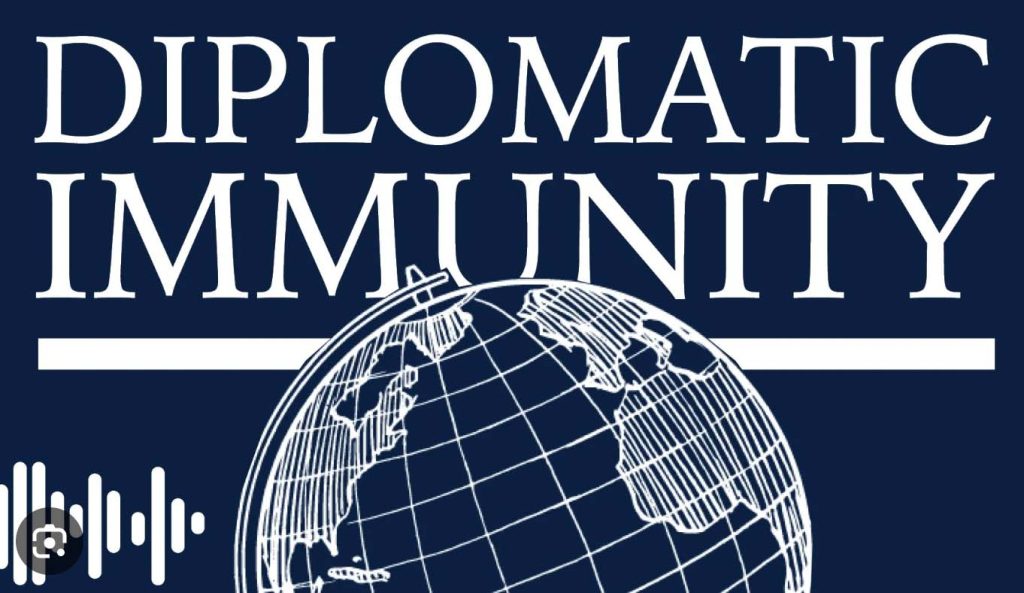
Diplomatic immunity is a concept deeply ingrained in international relations and law. It grants certain privileges and immunities to diplomats and embassy staff, ensuring that they can carry out their duties without fear of legal repercussions in the host country. However, diplomatic immunity is often misunderstood, leading to misconceptions and occasional controversies. In this comprehensive article, we delve into the basics of diplomatic immunity, what it means for embassy staff, and how it operates in the complex world of international diplomacy.
The Historical Origins of Diplomatic Immunity
Diplomatic immunity is not a recent development; its roots can be traced back to ancient civilizations. In Byzantium, Emperor Maurice is said to have provided protection to envoys, and Islamic Prophet Muhammad strictly forbade harming emissaries. These early practices laid the groundwork for the development of diplomatic immunity as we know it today.
What Is Diplomatic Immunity?
Diplomatic immunity is a set of legal privileges and immunities granted to diplomats and embassy staff to ensure their safety and enable them to perform their diplomatic functions without interference from the host country’s authorities. It is based on the principle that the envoy represents their home country and should be shielded from legal action or harassment in the host country.
Key Aspects of Diplomatic Immunity
Understanding the nuances of diplomatic immunity is essential for embassy staff and host countries alike:
1. Legal Framework: Diplomatic immunity is governed by international law, primarily the Vienna Convention on Diplomatic Relations of 1961 and the Vienna Convention on Consular Relations of 1963. These treaties outline the rights and responsibilities of diplomats and consular officers.
2. Extent of Immunity: Diplomatic immunity extends to a wide range of activities and situations, including avoiding parking summonses, making false statements, and even avoiding taxes in some cases.
3. Diplomatic Staff: Diplomatic immunity primarily covers embassy staff, including ambassadors, diplomatic agents, and administrative and technical staff. The level of immunity varies based on their rank and function.
4. Family Members: Diplomatic immunity often extends to family members of embassy staff, offering them protection and certain privileges in the host country.
5. Exceptions: While diplomatic immunity is extensive, it is not absolute. Host countries can declare a diplomat persona non grata, leading to their expulsion. Diplomatic immunity does not protect diplomats from actions taken in their home country or from violations of local laws unrelated to their diplomatic functions.
Operational Aspects of Diplomatic Immunity
Diplomatic immunity is more than just a legal concept; it has practical implications for embassy staff and host countries:
1. Conducting International Business: Diplomats play a crucial role in conducting international business, negotiation, and diplomacy. Their immunity ensures that they can engage in these activities without fear of legal consequences in the host country.
2. Recognizable International Bodies: Embassies and consulates are easily recognizable as international bodies. They often bear the national flag and emblem of their home country, signaling their diplomatic status.
3. Interaction with the Host Country: Diplomatic immunity requires diplomats to adhere to certain standards of conduct, including not interfering in the host country’s internal affairs or abusing their privileges. Failure to do so can strain diplomatic relations.
4. Protecting Human Rights: While diplomatic immunity provides significant privileges, it should not be used as a shield for human rights abuses. Host countries can raise concerns and request the waiver of immunity in cases of alleged serious crimes.
Conclusion
Diplomatic immunity is a fundamental component of international diplomacy, granting diplomats and embassy staff essential protections and privileges. It ensures that diplomats can carry out their diplomatic functions without fear of legal repercussions in the host country. However, it is a complex concept with nuances and exceptions. Understanding the basics of diplomatic immunity is crucial for embassy staff, host countries, and the broader international community to navigate the complexities of diplomatic relations while upholding the principles of international law and human rights.
